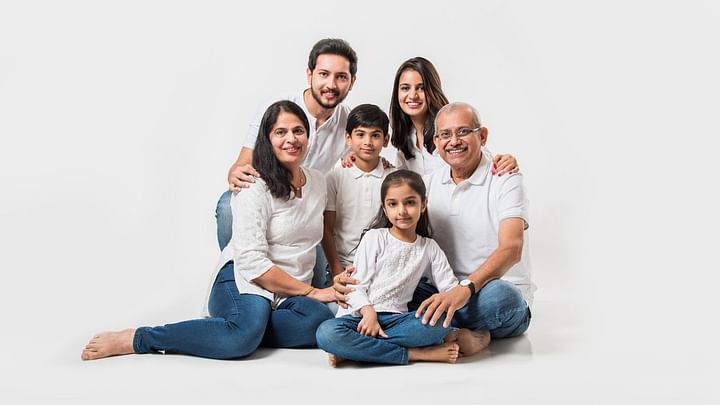Earlier this week, Indian filmmaker Shoojit Sircar spoke about the superiority of joint families over nuclear ones.
As Sircar romanticised a joint familial setup, he was met by a huge backlash, particularly by women who said that such a statement could come only from a man. Several others also pointed out the mental strain of being part of a such a domestic situation.
We reached out to mental health experts to ask them if a particular type of family is more detrimental than the other for the emotional well-being.
‘No Truth in Blanket Statements’
Dr Samir Parikh, Director, Department of Mental Health and Behavioural Science at Fortis Healthcare, says that it’s unfair to make these blanket statements.
We need to stay away from over-generalisations. First thing is, what are we comparing? Are they even two equal things? When you say a joint family, do you mean an ideal, non-fighting, cohesive structure?Dr Samir Parikh
If we are looking at an ideal family, of course the joint one is a better option, asserts the doctor. It’s advantageous in so many ways - there is emotional support and an end to isolation and loneliness.
Another important aspect where a joint family is advantageous is in the raising of children and during times of grief and celebration. You are always surrounded by people in case of need. Not all agree.
Joint Family vs Nuclear - Where Does the Dilemma Arise?
The dilemma arises, says Dr Aruna Broota, a New Delhi-based psychologist, when it comes to raising the children.

A joint family is considered a good atmosphere to bring up kids. That’s a big myth and I will prove to you how, but before that, let’s look at a joint family and all that it entails.Dr Aruna Broota
There are two things to be looked at:
- the nature of every family member
- the power dynamics
For instance, if another family member is looking after the kids they may eventually start seeing it as a restricting responsibility and will start holding it against the mother or father or both. To be able to understand this better, Dr Broota brings to attention another important concept, that of functional autonomy.
In simple terms, functional autonomy refers to a person’s freedom to define their happiness in their own range. Happiness for me might be reading a book quietly while for another family member it might be to eat junk food. It is the spontaneous pleasure of a person.Dr Aruna Broota
However, in case of a mother and daughter-in-law, the mother might feel that she wasn’t allowed functional autonomy during her own time. In such a scenario, she would want to withhold it from the daughter-in-law as well. If she is made to take care of the children, she will have a lot of qualms. Instead of seeing it as a form of freedom or an empowering role, she will complain about it.
Everyday I deal with patients where an elder member wants to be able to control the younger generation. Badho ka rob hona chahiye (the elders should have a certain power), they say. I tell them only animals are controlled, human beings live together.Dr Aruna Broota
‘The Problem is Faulty Comparisons, Not Gender’
Dr Parikh says that this is not a gender issue, but one of faulty comparisons.
There can be emotional support, what people associate with joint families, in nuclear families as well, and there can be a total lack of it too in the former. However, to say that a nuclear family will supersede the benefits of a coherent joint family is also flawed.Dr Sameer Parikh
Another criticism that people sometimes have of a joint family is that it can be an isolating space for the ‘leader’ or the ‘head’ of the family. Dr Parikh responds to it in the following manner:
This is a very warped way to look at a family. It’s not a political party, it’s not an organisation. The very concept of a leader in a family is a dated one.

Loneliness is a real concern, he adds, and on the contrary, it’s something a lot of young parents struggle with. There are also things like cultural education, morality, emotional well-being which a stable joint family has to offer to its members.
Look at the relationship of grandparents with their grandchildren. There is robust evidence to suggest its benefits on a child’s well-being.Dr Sameer Parikh
What is the Way Ahead?
Dr Parikh agrees with the idea of a cohesive familial space where there is support, love and care.
However, the kind of lifestyles we have, we are losing our sense of patience and the ability to listen, says Dr Broota. We need to lose our affinity towards power games to achieve a peaceful joint familial equation, she adds.
Personal progress, individualism, space, freedom are increasingly important for all of us. If we have that in a joint family, there is no problem at all.Dr Aruna Broota
The problem arises from a desire to control and assert power, concludes the doctor.
(At The Quint, we are answerable only to our audience. Play an active role in shaping our journalism by becoming a member. Because the truth is worth it.)
